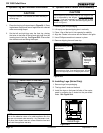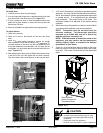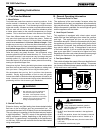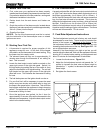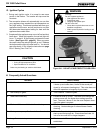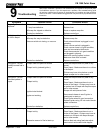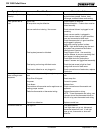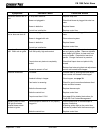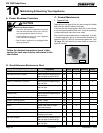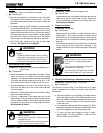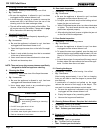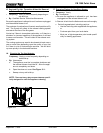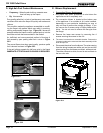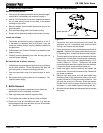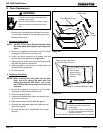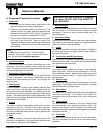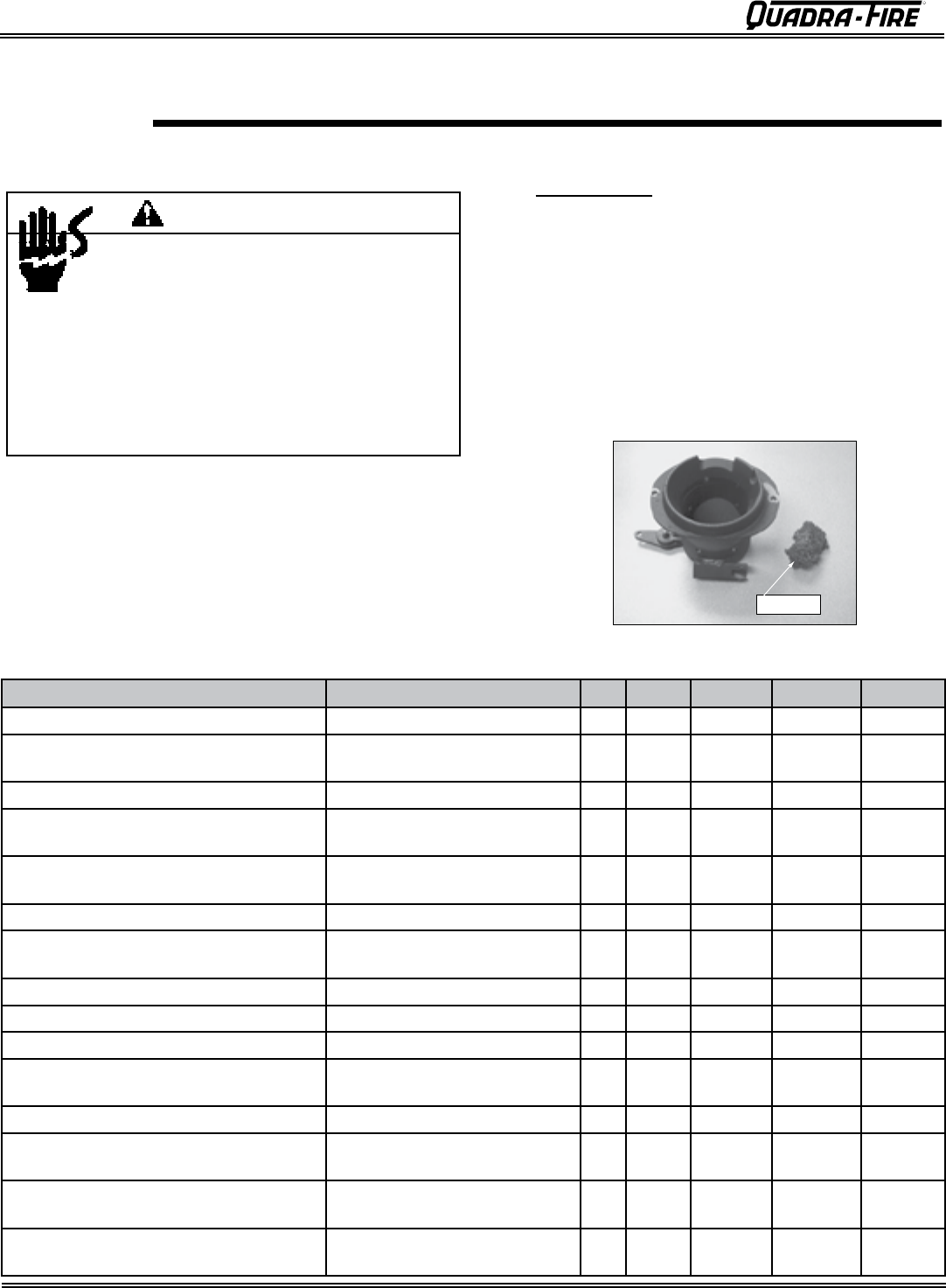
Page 28
7014-082D
September 1, 2008
R
CB 1200 Pellet Stove
R
R
10
Maintaining & Servicing Your Appliance
C. General Maintenance
1. Types of Fuel
Depending on the type of fuel you are burning will dictate
how often you have to clean your repot.
If the fuel you are burning has a high dirt or ash content
or you are burning shelled eld corn, it may be necessary
to clean the repot more than once a day.
Dirty fuel will cause clinkers to form in the repot. A clinker
is formed when dirt, ash or a non-burnable substance is
heated to 2000°F (109°C) and becomes glass-like. See
“D” page 32 in this section for more details on fuels with
high ash content.
Clinker
Figure 28.1 - Clinker
Shock and Smoke Hazard
• Turn down thermostat, let appliance completely
cool and exhaust blower must be off. Now you
can unplug appliance before servicing.
• Smoke spillage into room can occur if appliance
is not cool before unplugging.
• Risk of shock if appliance not unplugged before
servicing appliance.
CAUTION
A. Proper Shutdown Procedure
Cleaning or Inspection
Frequency Daily Weekly Monthly Yearly
Ash Pan Every 5 bags of fuel OR X
Ash Removal from Firebox More frequently depending on
the fuel type or ash build-up
OR X
Beneath Heat Exchanger Every 1 ton of fuel OR X
Blower, Combustion (Exhaust) More frequently depending on
the fuel type
OR X
Blower, Convection More frequently depending on
the fuel type
OR X
Door Latch Inspection Prior to heating season OR X
Exhaust Path More frequently depending on
ash build-up
OR X
Firebox - Prepare for Non-Burn Season At end of heating season OR X
Firepot - Burning pellets Every bags OR X
Firepot - Burning Corn Every 1 bag OR X
Glass When clear view of repot
becomes obscure
OR X
Heat Exchanger & Drop Tube Every 1 ton of fuel OR X
Hopper Every 1 ton of fuel or when
changing fuel types
OR X
Top Vent Adapter More frequently depending on
the fuel type or ash build-up
OR X
Venting System More frequently depending on
the fuel type
OR X
B. Quick Reference Maintenance Chart
Follow the detailed instructions found in this
section for each step listed as referenced in the
chart below.



